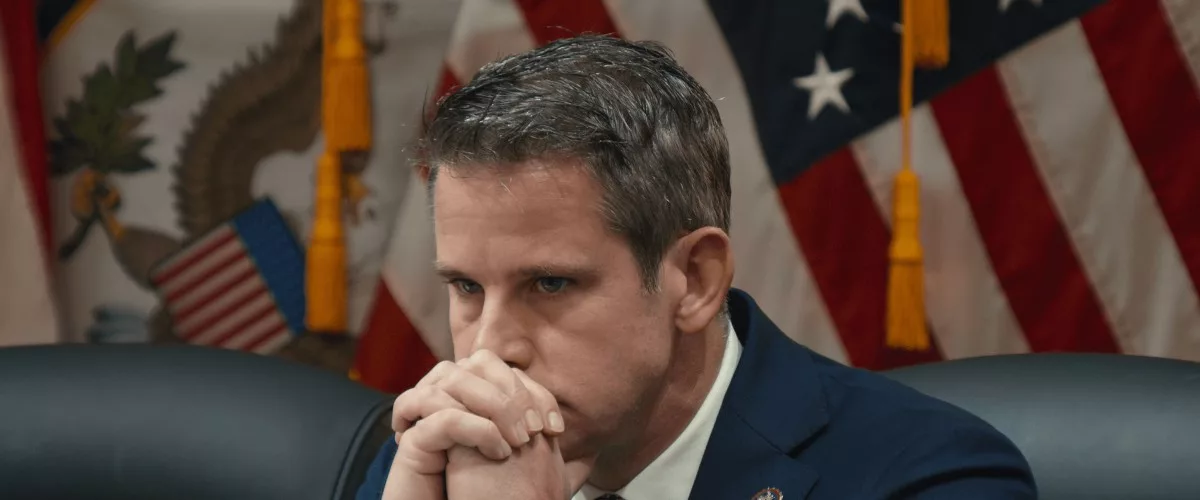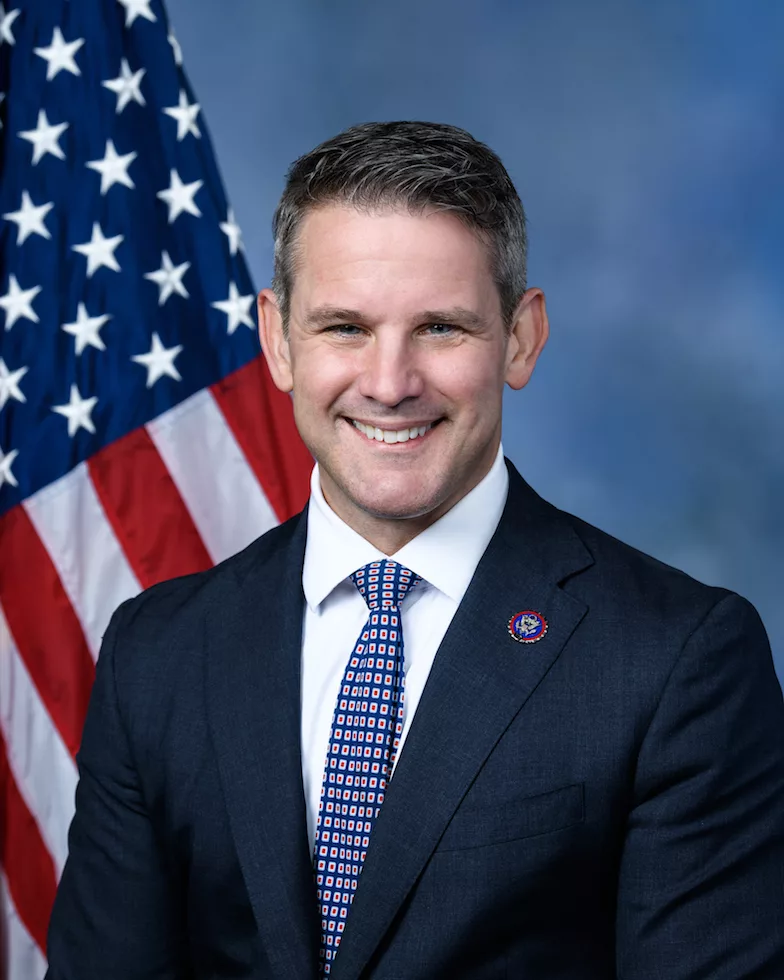The documentary “The Last Republican” follows the final months in office of Congressman Adam Kinzinger, who represented two districts in Illinois over the span of 12 years. He was one of a handful of Republicans who stood against President Donald Trump, refusing to support him in 2016, then going after him more straightforwardly after Trump lost the election of 2020 and tried to overturn the results by inciting a mob that stormed the Capitol on January 6, 2021, causing multiple deaths. Unlike other Republicans, including then-Senate minority leader Mitch McConnell and then-Speaker of the House of Representatives Kevin McCarthy, Kinzinger never walked back or even softened his position on Trump’s role in Jan. 6 to help position Trump for re-election and stay close to the party’s power center. He instead made his opposition to Trump the defining part of his identity.
He started a podcast titled “Country First Conversations” and a political action committee to fund anti-Trump candidates. He later supported President Joe Biden and Vice President Kamala Harris for president and spoke at the Democratic National Convention. After voting against Trump’s first impeachment, Kinzinger voted for his second impeachment and later said he regretted not voting for the first one.
He also became one of 35 Republicans to support the formation of a committee to investigate the attacks on the Capitol and served on the committee himself. There’s a grimly funny segment showing House speaker Nancy Pelosi, a Democrat, announcing that Kinzinger was going to serve on the Jan. 6 committee before actually asking him, and a snippet of McCarthy casually referring to Kinzinger and another Trump critic, Wyoming Republican senator Liz Cheney, as “Pelosi Republicans.” When Cheney lost her primary in Wyoming to her former advisor Harriet Hageman—who briefly opposed Trump, then supported him again—Kinzinger accused conservative pastors of “failing their congregations” by encouraging support for Trump. He is now a CNN commentator.
The title telegraphs the point-of-view of the movie’s director, Steve Pink (“Grosse Pointe Blank“). Pink is a progressive who disagrees with most of what Kinzinger stands for politically (the movie opens with the Congressman baiting Pink by calling him a “communist”). Pink positions Kinzinger as one of the last true Republicans, primarily because he consistently advocated for the rule of law where Trump was concerned and, in his words, put “country over party.”
This is, of course, a questionable framing, good for branding and sparking arguments on podcasts, but not much else. There are plenty of examples of Republicans positioning themselves above the law at various points in the last 50 years, and it’s not as if Democrats have a spotless record in that regard either. In any given era of American history, the “true” Republicans are whichever ones define the identity of the party, and at this particular juncture, it’s not people like Kinzinger.
“The Last Republican” also mostly elides Kinzinger’s positions on various issues, seemingly to make him more palatable here as a Capra-esque hero who is exclusively defined by standing up to corruption, and against a politician that the filmmaker also opposes. (Kinzinger had a much more progressive record on anti-discrimination legislation than most Republicans, but still voted with Trump 90% of the time, blamed China for spreading COVID, and voted in 2017 to repeal parts of the Affordable Care Act.)
This is not to say that Kinzinger’s opposition to Trump isn’t evidence of integrity and a willingness to sacrifice power for principle. That’s plainly the case, and it’s driven home in a scene where Kinzinger and his wife Sofia Boza-Holman sit on a couch in their house cradling their newborn son while watching the House vote to censure Kinzinger and Cheney for serving on the Jan. 6 committee. But there’s a more nuanced movie that could’ve been made covering the same period in Kinzinger’s life, one that took fuller measure of the ancient proverb “the enemy of my enemy is my friend”—though, to be fair, the very end of the movie humorously acknowledges what strange allies Pink and Kinzinger are, at least as far as this project is concerned.
The movie also gives a strong sense of Kinzinger as a person walking against the winds of change and dealing with tendencies in the American character that elude party definitions. “Everybody’s self-centered,” he tells Pink. “That’s the fight now of my next part of life, fighting against that cynicism.”




















